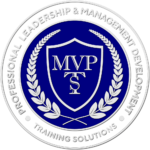Multitasking and efficiency are highly valued, attention to detail may seem like a minor concern. However, this is not the case because no matter what, you need to be fully involved in your work. Attention to detail is not a trivial skill but a valuable asset that can significantly impact the success and growth of individuals and organizations alike.
It is expected from you that you think about how you can benefit the company. You have to make sure your work resonates with what the company accentuates and that is why attention to detail is crucial. In this blog, we will explore the reasons why attention to detail is indispensable in the workplace.
5 Reasons Why Attention to Detail is Important:
As you’re sitting there at your desk, with no motivation or productivity, you’re bound to make mistakes. Being able to focus on attention to detail gives us the ability to notice mistakes in our work and also bring in new strategies after analyzing what’s missing.
So, this is why you need to learn about the importance of attention to detail.
1- Establishing Credibility and Professionalism:
Attention to detail is often associated with professionalism and credibility. When individuals consistently exhibit a meticulous approach to their work, it conveys a sense of competence, reliability, and dedication.
Whether it’s crafting error-free reports, presenting flawless presentations, or ensuring accurate data entry, attention to detail reflects a commitment to delivering high-quality work. Hence, professionals not only enhance their own reputation but also gain the trust and confidence of colleagues, superiors, and clients.
2- Enhancing Productivity and Efficiency:
Attention to detail is directly linked to increased productivity and efficiency in the workplace. When individuals pay careful attention to every aspect of their tasks, they reduce the likelihood of errors, rework, and delays.
Moreover, professionals can streamline workflows, complete projects more swiftly, and allocate their time and energy to other critical tasks. Moreover, meticulousness encourages effective planning and organization. Hence, enabling individuals to prioritize tasks, set realistic deadlines, and execute them with precision.
3- Improving Problem-Solving and Decision-Making:
The ability to pay attention to detail is essential for problem-solving and making decisions in challenging and complex work contexts. Additionally, careful scrutiny and analysis of information enable professionals to identify patterns, recognize discrepancies, and uncover underlying issues.
Attention to detail enhances the ability to ask critical questions, consider multiple perspectives, and make informed decisions based on accurate and complete data. Moreover, professionals can devise creative solutions and mitigate risks more effectively. Thus, leading to better outcomes for themselves and their organizations.
4- Enhancing Customer Satisfaction and Retention:
Attention to detail training courses is especially crucial in customer-centric industries. A commitment to meticulousness helps deliver superior customer experiences, which in turn leads to increased satisfaction, loyalty, and retention.
Small details, such as remembering preferences, addressing customers by name, or providing tailored recommendations, can make a significant impact on customer satisfaction and brand loyalty.
5- Cultivating a Culture of Excellence:
Attention to detail is not just an individual attribute. Additionally, it is a characteristic of high-performing teams and organizations. When meticulousness is ingrained in the workplace culture, it becomes a shared value that permeates every aspect of operations.
Furthermore, organizations can foster a sense of pride, ownership, and accountability among employees. A culture that values precision creates an environment where errors are minimized, standards are consistently met, and continuous improvement is embraced.
Ultimately, this leads to enhanced efficiency, innovation, and a competitive edge in the marketplace.
